Rajshahi, 24 Apr (V7N)- Fourteen restaurants (hotels) and shops constructed at Rajshahi University (RU) at a cost of Tk 6.5 million remain unopened two years after their completion in March 2023. These facilities were built outside the university's master plan.
The Chief Engineer of the university stated that the delay is due to complications in determining the allocation process. While the process has now been decided – allocation to the highest depositors and renters through an open tender – the specific individuals or entities to be allocated these facilities have yet to be finalized. The Treasurer, however, indicated that efforts are underway to launch the facilities soon.
On-site observations revealed the construction of 14 establishments at five different locations on campus: four near the mental health center, two at Tukitaki Square, one behind the Dean's Complex building, one near the Faculty of Fine Arts (restaurant), five at Iblish Square, and one near the Faculty of Fine Arts (shop). The structures have brick walls and tin roofs.
According to the university's engineering department, a 50-year master plan was formulated in 2019. Despite this, construction of these 14 shops and restaurants commenced in late 2022, with an estimated cost of Tk 6,246,781. Specific allocations included Tk 1,320,717 for six shops at Iblish premises and near the Faculty of Fine Arts, Tk 840,192 for a restaurant near the Dean's Complex, Tk 1,167,392 for two restaurants at Tukitaki premises, and Tk 2,918,480 for four shops near the Qudrat-e-Khoda Academic Building and one restaurant at the Faculty of Fine Arts. An initial plan for 16 establishments (seven shops) was revised to 15 (six shops), leaving an estimated Tk 188,673 unspent from the original allocation for shops. The total expenditure stands at Tk 6,058,108.
Md. Abul Kalam Azad, the university's acting chief engineer, explained that these temporary shops and hotels were built to ensure student health and beautify the campus environment, stating that the master plan is a long-term and gradual process. Regarding the prolonged inactivity, he mentioned delays in finalizing the allocation process, with the current decision being an open tender to the highest bidders to ensure transparency.
Mobile shopkeepers on campus have expressed concerns about the tender process, fearing that poorer businessmen may be disadvantaged and suggesting priority be given to those already operating on campus.
A recent meeting of the Estate Department's advisory committee finalized the tendering process, but the criteria for participation are still under consideration.
Professor Md. Matiar Rahman, the university treasurer and chairman of the advisory committee, stated that the specific allocation recipients are yet to be decided by a separate committee, but the administration aims to utilize the shops soon.
Md. Rajab Ali, Assistant Registrar of the Estate Department, indicated that a meeting on March 10th decided on allocation through tenders, with the university administration now considering whether to restrict participation to current campus shopkeepers or open it to external bidders.
Vice-Chancellor (Administration) Professor Dr. Mohammad Main Uddin acknowledged the delay, noting that the facilities were built by the previous administration and were under the Engineering Department before being transferred to the Estate Department. He confirmed the decision to allocate through tender. He also stated that provisions will be made in the tender process to offer some benefits to existing campus businesses and outlined plans for a pharmacy, student canteens in Tukitaki, a teachers' canteen near the Dean's Complex, and the removal of temporary polythene-covered shops.
END/RAR/RH/



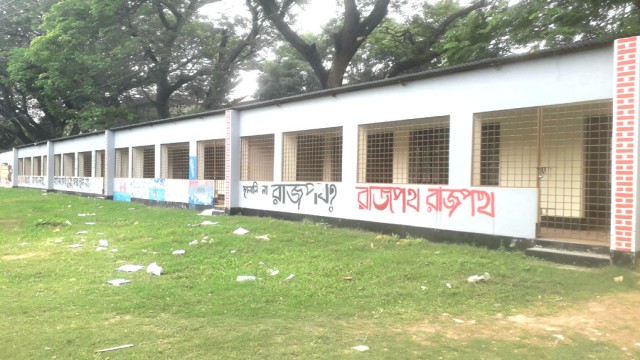

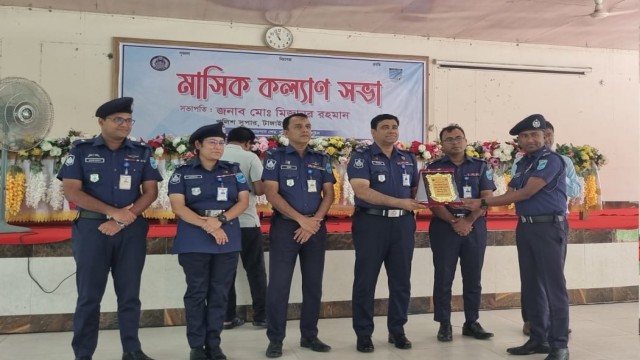

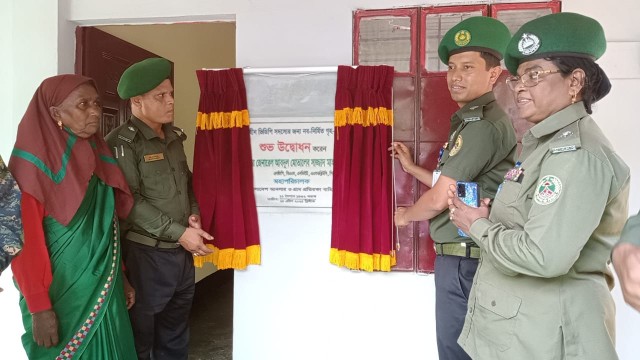

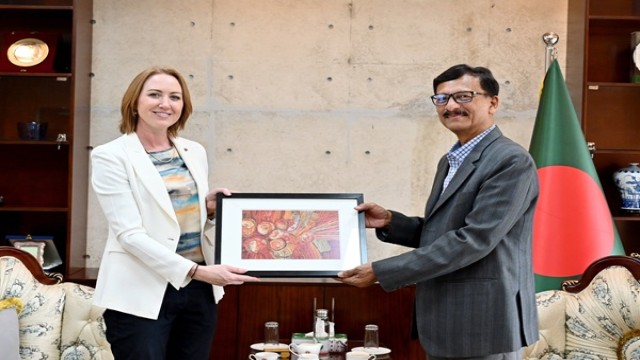
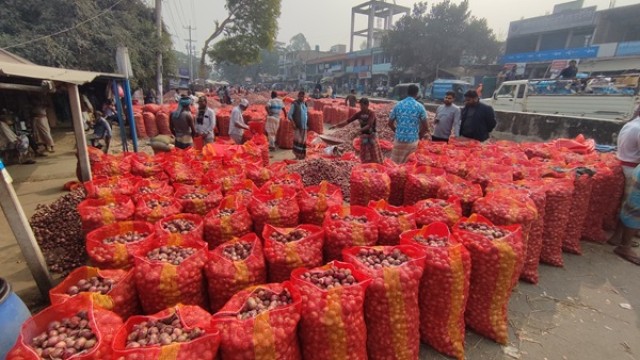



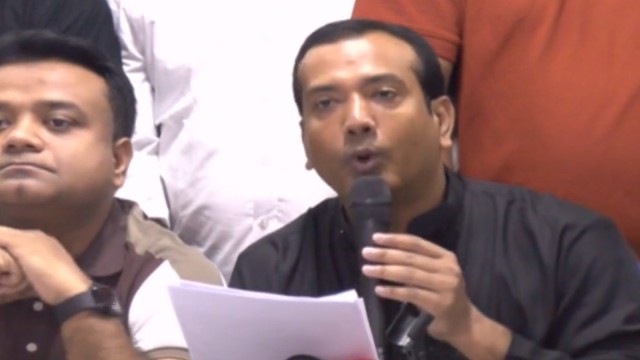



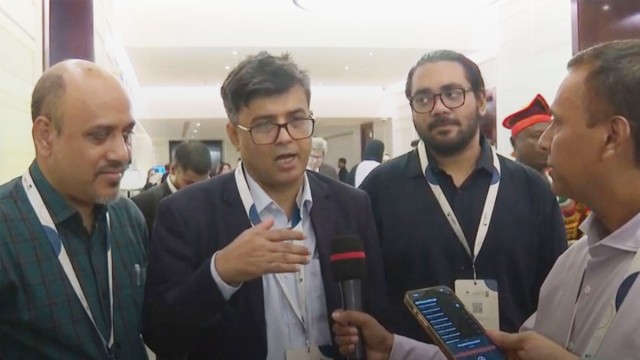
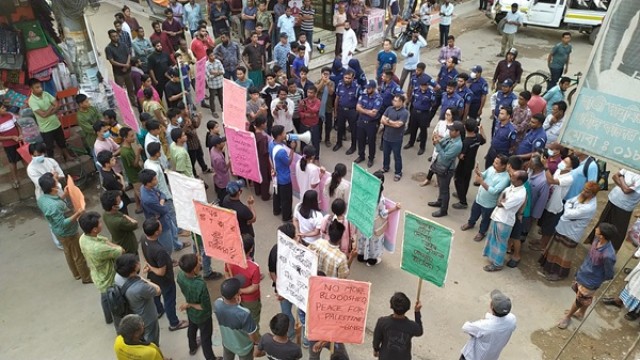
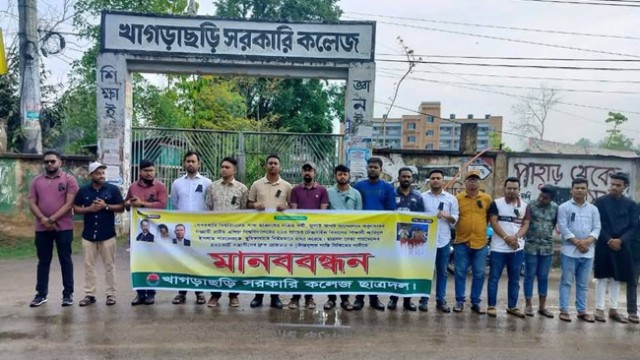
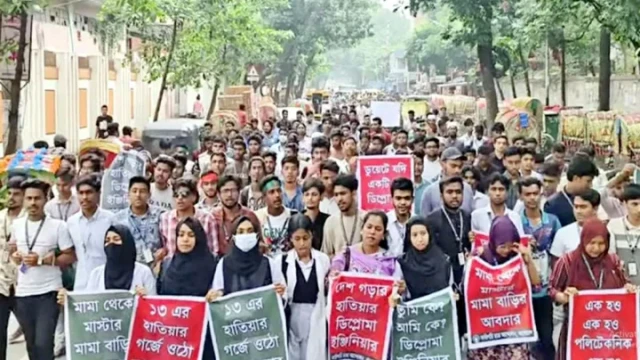
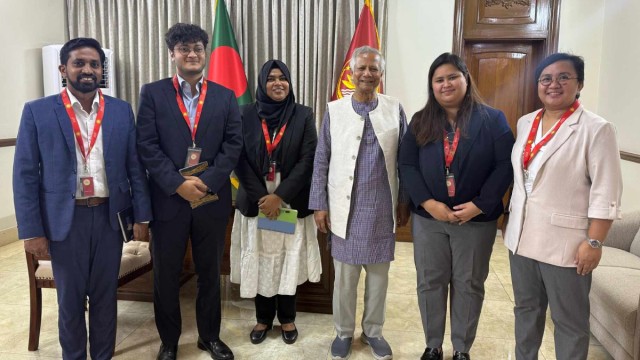

Comment: